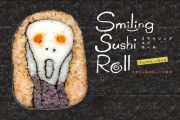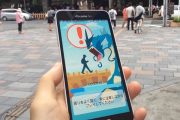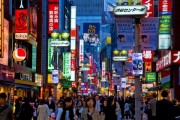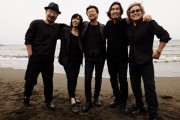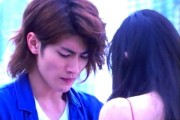Dialects in Japan are often dropped in professional life for standard Tokyo Japanese, and those who speak in dialect during news reports often find themselves subtitled. Still, some dialects, most notably Osaka-ben, have gained currency in the comedy and entertainment worlds in recent years.
Despite this, it is often said that people who speak in a different dialect to one’s own are almost impossible to understand, lending an element of the unknown to their speech.
So when Ameba News reported on a survey of which Japanese dialect is the best for fighting, netizens from all over Japan weighed in…
From Ameba News:
If You Have An Argument, This Dialect Is Best!: Netizens Rank Japanese Dialects
I have no idea what he’s saying, but he’s really really angry…
“Je je jeeeee!” — the talked-about line from the NHK serial dramatization of the novel “Ama-chan”. “Je” is a dialect word used in one part of Iwate Prefecture when one is surprised, and it appears that the number of “je” sounds increases according to how surprised a person is. Dialects that we don’t understand are something that have a strong impact on the person listening. So we asked people from all over Japan to imagine that if people from each of the 47 prefectures were to have an argument, which dialect did they think would be the best?
No. 1: Osaka
No. 2: Hiroshima
No. 3: Fukuoka
No. 4: Hyōgo
No. 5: Kagoshima
No. 6: Kōchi
No. 7: Kyoto
No. 8: Aomori
No. 9: Tokyo
No. 10: Okinawa
“Osaka” dialect was chosen as number one. It seems as if someone went off at you in Osaka dialect, saying “nan ja boke” [“You fool”] or “itemauzo” [“I’m gonna make you hurt”], then even if you’d done nothing wrong, you’d still find yourself apologising as a reflex. The fact that tsukkomi culture is firmly embedded in Osaka, and that there is the image that people would immediately point out any mistakes or inconsistencies in your conversation is probably the main reason that it accumulated so many votes. Hiroshima took second rank. Hiroshima dialect is a dialect which is used in manga and films such as “Barefoot Gen” and “Battles Without Honour and Humanity”, and which gives a strong impression in stories. It seems as though if someone closed in on you saying “Ondoryaa” [“omaera”; “You” plural] “taigainiseiya” [“ii kagen ni shiro; “quit fooling”] in a threatening voice, you’d burst into tears without even thinking. And while “Fukuoka”, “Hyogo”, and “Kagoshima” continued on from this, securing the top spots for Western Japan, “Aomori” came in at number eight. Perhaps this is because the strong Aomori dialect of Mikami Yamato made a strong impression when he appeared in a popular feature called “Ultimate Battle To Decide The Heisei King of Arguments” from the television programme “Tensai Takeshi no Genki ga Deru TV!”, which was broadcast through the 1980s to 1990s.
When we hear words we’re not used to, or words we don’t understand, we tend to feel uneasy, or feel intrigued. When a verbal disagreement breaks out, if you use a dialect that the other person doesn’t understand, they get confused when they think about what the words might mean, and the argument will most likely cease.
Comments from Ameba News:
雪緋奈:
This is probably discrimination, but people from Osaka are just mouthy and not very frightening. I think the things they say are generally kind, too, whereas in comparison young people today say awful things without giving a damn.
ぷっちょ:
It’s not that they’re good at arguing, they just have dirty mouths. (Osaka)
稲中ライダーキック失敗:
Old women in Osaka are the best in the world at arguing.
manken99:
This is hardly something to brag about for Osaka.
ヤシリッシュ:
Nah, at the end of the day it’s Hiroshima and Okayama dialects.
昼香:
So it’s a place known for being full of guys with silver tongues and for having the most debt. So guys who are all mouth are bad with money and never work.
ありす:
When I’m in an argument I wish I’d been from Kansai. They’re used to it, so even if something is said to them they don’t think anything of it, and it seems like they can win fights with people from other areas in the heat of things.
魔朗如香帆:
What is so good about Osaka dialect? The dialect is just annoying.
doggy:
Rather than this and that about dialects in such a small island nation, how about learning something like English and turning our attention to the wider world?
りちょ:
I think that the Hyogo Banshuu dialect is vulgar.
yuzi:
This ranking has turned out this way because it’s not based on reality. It’s just the image of a dialect w
アマテラス:
When it comes to dialects you can’t understand what anyone is saying, so you can’t really fight.
黒猫★Wish:
With arguments, it’s most important to just ignore people before they can irritate you. If you have no one to argue with, you can’t argue, can you! (笑)
歩くコレステロール:
Hiroshima dialect is freakishly scary w
@アニメ.love.jp:
It’s personality I guess (笑)
羽凪@ていおん!!(鱈子・ω・人・ω・鮭卵):
Hyogo wwwww It’s definitely Osaka dialect.
ろん(‘-ω-`)ろーん:
I burst out laughing at the Hiroshima dialect for “Quit fooling”!
空.:
I don’t think we use stuff like “You’re gonna hurt” in Osaka dialect very much these days…
